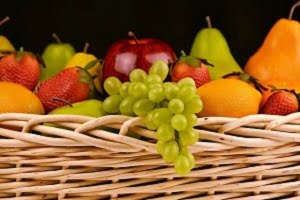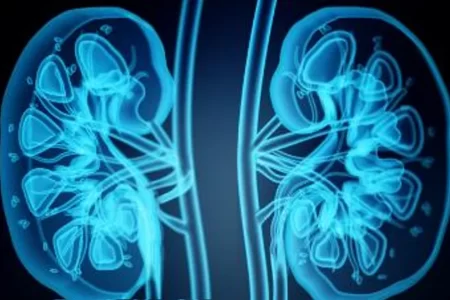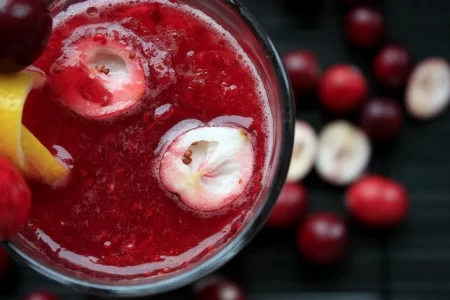Kidney Stone Diet
- Updated on: Feb 21, 2024
- 5 min Read
- Published on Nov 25, 2020

What Is the Kidney Stone Diet?
To avoid the development of kidney stones or to prevent their recurrence, you should make changes to the amount of salt (sodium), calcium, oxalate, protein, citrate, potassium, and fluid in your diet. A registered dietician can help you with making these changes.
Sometimes following a special diet plan may prevent you from developing more kidney stones. While there is no universal diet for all types of kidney stones, many kidney doctors and dieticians recommend the DASH (Dietary Approaches to Stop Hypertension) diet for people with kidney stones. It has been shown to reduce the risk of developing kidney stones as well as lower blood pressure. It also decreases the risk of heart disease, stroke, and cancer. The DASH diet limits sodium, sugar, and red meat and encourages the consumption of food items like vegetables, fruits, whole grains, and low-fat dairy.
What to Drink for Kidney Stones?
Drinking plenty of water to stay well hydrated is one of the best measures you can take to avoid kidney stones. To reduce your risk of developing a new kidney stone, it is advised that you drink at least three quarts (12 cups) of fluid throughout the day. When you sweat a lot in hotter weather, you may need to drink more to make up for the fluid loss from sweating. This helps to keep your urine less concentrated, which in turn reduces the risk of stone formation. A major part of your fluid intake should be water. Try to make a habit of drinking a glass of water before bed.
Another form of your fluid intake can be citrus fruit juices. Naturally occurring citrate found in these fruits helps in reducing your risk for the formation of new stones. Lemons, oranges, and grapefruit are a good source of natural citrates.
Read About How Big are Kidney Stones?
What Are the Foods to Avoid With Kidney Stones?
Because kidney stones can vary according to what they are made of, the foods to include in a diet differ accordingly. You should consult your doctor about what foods you should and should not eat and reduce kidney stone formation risk. The following are some general rules you should follow to avoid the formation of kidney stones:
Limit Your Salt Intake
High sodium levels in your body can encourage calcium build-up in urine, which in turn can promote kidney stone formation. Avoid adding additional salt to your food. You should also check the labels on processed foods to see the quantity of sodium they contain. Fast food and regular restaurant foods can also be high in sodium. You should also take note of what you are drinking as some vegetable juices are high in sodium.
Limit Your Animal Protein Consumption
You should cut down on animal protein consumption as many protein sources, such as red meat, pork, chicken, poultry, fish, and eggs, increase the amount of uric acid in your body. It can also reduce a chemical in urine called citrate. Citrate helps prevent the formation of kidney stones. You should increase the consumption of alternatives to animal protein such as quinoa, tofu (bean curd), hummus, chia seeds, and Greek yogurt. Since protein has a pivotal role in your overall health, you should discuss how much protein you should consume daily with your doctor.
Avoid Cola Drinks
Cola drinks are high in phosphate, yet another chemical that can encourage the formation of kidney stones. You should also strive to reduce or eliminate added sugar intake. This sugar is added to processed foods and drinks, which can increase your risk of kidney stones. You should monitor the amount of sugar you eat in processed foods, such as cake, fruit, soft drinks, and juices.
Take Enough Calcium From Foods
Even though people confuse calcium as a stone-forming agent, but it’s not. When not consumed in the right amounts, calcium binds with other substances in the digestive tract that may cause stones. You should consult your doctor about how much calcium you should eat to help prevent getting more calcium oxalate stones and to support strong bones. You must look for plant-based low-oxalate calcium sources such as calcium-fortified juices, cereals, bread, some kinds of vegetables, and some types of beans.
Fruits and Vegetables
Increasing the amount of fruits and vegetables in your diet can help you to prevent kidney stones. Fruits can be fresh, dried, or frozen. You should look for fruits rich in citric acid as they have a positive effect in preventing kidney stones but at the same time, try to limit the fruits and vegetables that have high oxalate content or be sure to eat them in combination with calcium-rich foods.
Which Diet Can Prevent Kidney Stones? Which Foods Can be Consumed With Kidney Stones?
The type and constituents of diet to prevent kidney stones depend on what type of stone you are having or expect to have. However, as a general rule, diet to prevent kidney stones must include one or more of these:
- Vegetables
- Citrus fruits
- Foods having a high source of calcium
- Low oxalate fruits and vegetables
- Plant-based proteins
- Plenty of fluids
Along with this, you should limit the amount of sodium and animal protein in your diet.
Read About How Are Kidney Stones Formed?
Which Foods May Cause Kidney Stones?
Numerous foods cause kidney stones. However, different food items are responsible for different kinds of kidney stones, which may include:
- Foods having high animal protein
- Foods having a high amount of salt and sodium
- Oxalate rich foods
- Purine rich foods
- Vitamin C supplements
- High consumption of alcohol
- Calcium supplements rather than food
- Foods having a high amount of added sugar
- Food that makes your urine highly alkaline or acidic
- Phosphate rich foods
Frequently Asked Questions
What foods should I avoid to prevent kidney stones?
To prevent kidney stones, it's advisable to avoid high-oxalate foods such as spinach, rhubarb, nuts, and chocolate, as well as foods high in sodium and animal proteins. Limiting intake of processed foods and sugary beverages is also recommended.
Can I eat dairy products if I have a history of kidney stones?
Yes, consuming calcium-rich dairy products like milk, yogurt, and cheese in moderation can actually help prevent kidney stones by binding to oxalates in the digestive tract and reducing their absorption into the bloodstream.
Are there any specific fruits and vegetables beneficial for preventing kidney stones?
Yes, fruits and vegetables high in water content and citric acid, such as citrus fruits, watermelon, and berries, are beneficial for preventing kidney stones. They help increase urine volume and inhibit the formation of crystals in the kidneys.
Can I still enjoy coffee and tea if I'm prone to kidney stones?
Yes, moderate consumption of coffee and tea is generally acceptable for individuals prone to kidney stones. However, excessive caffeine intake may increase the risk of dehydration, so it's essential to balance consumption with adequate hydration.
Is it necessary to completely eliminate oxalate-containing foods from my diet?
While it's not necessary to completely eliminate oxalate-containing foods from your diet, it's advisable to consume them in moderation and alongside foods rich in calcium to help prevent the formation of kidney stones.












